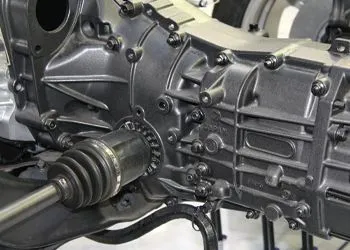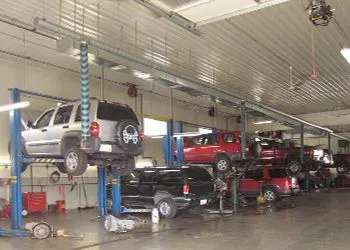Frequently Asked Questions About Drivetrains

Your vehicle’s drivetrain is one of its most important systems, responsible for delivering power from the engine to the wheels. Understanding your drivetrain can help you make better decisions when it comes to maintenance, repair, and even purchasing a vehicle. At Waterloo Transmissions, we can answer your questions about drivetrains. Here are some frequently asked questions about drivetrains that can help clarify what you need to know.
What is a drivetrain?
The drivetrain consists of all the components that transfer power from the engine to the wheels. It typically includes the transmission, driveshaft, differential, axles, and wheels. Its main job is to convert the power produced by the engine into motion. The drivetrain works in conjunction with the engine and transmission to ensure your vehicle runs smoothly. Depending on the type of drivetrain (all-wheel drive, front-wheel drive, rear-wheel drive, or four-wheel drive), power is distributed differently across the wheels.
What is the difference between a drivetrain and a powertrain?
Though the terms drivetrain and powertrain are often used interchangeably, they refer to different systems. The powertrain includes both the drivetrain and the engine. In short, the powertrain is a broader system encompassing all components responsible for powering the vehicle, while the drivetrain only refers to those parts involved in transferring engine power to the wheels.
What are the types of drivetrains?
There are four main types of drivetrains:
- Front-Wheel Drive (FWD): In FWD vehicles, power is sent to the front wheels only. This type of drivetrain is common in many sedans and compact cars, offering improved fuel-efficiency and traction in light snow or rain.
- Rear-Wheel Drive (RWD): RWD vehicles send power to the rear wheels. This is often found in trucks, performance cars, and some SUVs. RWD provides better handling, especially under high-performance driving conditions.
- All-Wheel Drive (AWD): AWD systems distribute power to all four wheels. It’s often used in crossovers and SUVs, providing better traction on slippery surfaces.
- Four-Wheel Drive (4WD): 4WD systems allow the driver to manually engage power to all four wheels, typically used in off-road and rugged terrain. These systems are commonly found in trucks and off-road vehicles.
What are common signs of drivetrain problems?
Drivetrain problems can manifest in various ways. Some of the common signs include:
- Unusual noises: Grinding, clunking, or whining noises coming from the transmission or under the vehicle can be a sign of drivetrain issues.
- Vibrations: If you feel unusual vibrations while driving, especially when accelerating or turning, this may indicate a problem with the axles or differential.
- Difficulty shifting: If your vehicle is having trouble shifting gears, it could be a transmission issue, which is a crucial component of the drivetrain.
Where can I get expert drivetrain repair in Akron, OH?
For top-quality
drivetrain repair in Akron, Canton, and Dover, OH, contact Waterloo Transmissions. Our local transmission mechanics can expertly handle your vehicle’s drivetrain needs!





